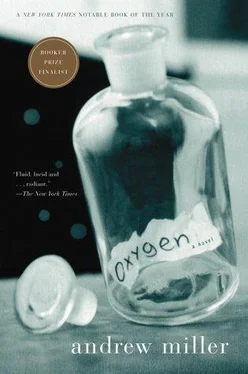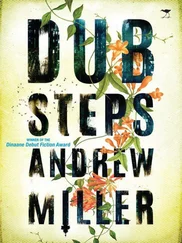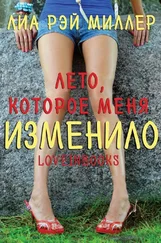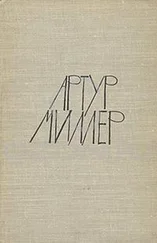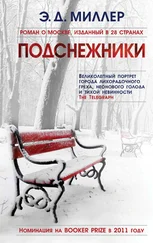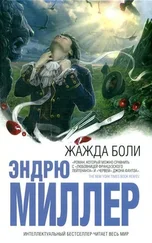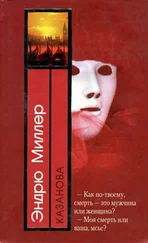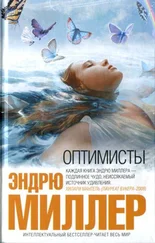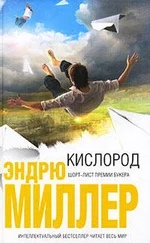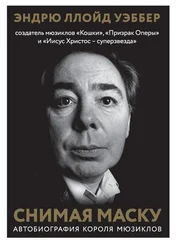On the shelf above his desk the digits of the radio alarm flicked from 8:59 to 9:00. Karol was due at any moment and there were still a dozen jobs to be done in the kitchen before they could eat. But as he left the study he imagined the fax continuing all night, the paper spreading over the desktop, over the floor, then rising in rustling loops to the ceiling. An inexhaustible complaint. An oracle. A relentless call to arms.
With his jacket slung over his shoulder, Larry negotiated the shuttle satellite at LA airport. Ahead of him the young Jewish mother carried the child on her hip until the two of them were met by a party of Jewish men in Streml and skullcaps, one of whom, a magnificently built young man, his beard as soft and glossy as a girl’s pubic hair, was evidently the child’s father, and she climbed into his arms, all nausea forgotten, proud and giggly, reunited with her hero, rescued.
Larry watched them for a while, furtively, from between the gathered suits under the flight information screens. How sweet if he could somehow be included in that little group and share in their happiness! He imagined himself in a crisp white shirt, Uncle Reuben perhaps, with the type of excellent pale skin that comes with certain kinds of righteousness. He would own a dry-goods store downtown, or a kosher delicatessen so that his fingers smelt faintly of pickles. Vi gay’st du, Reuben? Come into the circle!
He moved on, entered one of the concourse bars, and ordered a Budweiser, taking it to a stool by the wooden Indian. It was only his third beer of the day – the first two in the kitchen at home before setting out – and this he still considered an acceptable level of consumption. He knew that there were those among his Californian acquaintances who considered him an alcoholic because it was nothing to him to drink a bottle, a bottle and a half of Napa Valley wine at a sitting, or half a dozen cans during a TV show, but they had not seen a real alcoholic at work, and he had and he knew the difference.
His father, Stephen Valentine, for the last six months of his life, had lived uninhibitedly as a drunkard, no longer troubling to top up his morning tumbler of vodka with an inch of orange juice, or have a spoonful of coffee with his whisky at eleven. He had drunk the stuff raw and with a certain sad bravado, revealing at last the full measure and tyranny of his thirst. And there had been a certain slewed dignity to it that had made things easier, freeing them from that wearying and shaming pretence, the sorry fiction that ‘Daddy’s just a bit tired’. Though, of course, in a sense it was true; he had been tired, fatigued to the point of madness from trying to live a life he considered, with that secret insider view no wife or therapist could ever share, an irreversible failure.
Early on, the brothers had learned how to survive his rages, those evenings when he moved around the house like an electric storm, bawling accusations and hunting down the lost first cause of it all, the wrong turning that had led to his ruin. More difficult than the anger were those moods of gross sentimentality when he would appear in the playroom wanting to be with his boys and join in and do as other dads did. But he stank of the drink, and the brothers had not wanted him there – too loud, too forceful, too grimly jolly. When Alice saw it getting out of hand she would sometimes turn on him – sheer mother instinct, which was a power beyond them all, fierce and pure – and Stephen would shut himself away in the workroom or the old summerhouse, where Larry one afternoon looked in at him, his back, his boneless shoulders, as he sat among the sacking and old apples, tending a bottle, working it, and then, alerted by some shift in the light, turning to the window to see his son and exchange with him a long glance through the cobwebbed glass, a look that had taught Larry – those lessons that pass through the eye like a virus – that it wasn’t the toxicity of alcohol which killed a drunkard, but the unsheddable burden of self-consciousness.
Alec had looked to Larry. Larry had looked to Alice. But who had she looked to? Whose strength or example had she called on the night a policeman stood on the doorstep, his fluorescent jacket brilliant with rain, asking if her husband had been driving a sky-blue Rover? The boys, woken by the chimes, had huddled at the top of the stairs, peering through the open hall door. They knew there must have been an accident – why else did policemen call at midnight? – but the details, the soaked road, the speed, the unlit corner, the car’s flight beyond the verge, these emerged only slowly, from several sources, over months or even years. Some things Larry had never learned: the particulars of his father’s wounds, whether he had been killed outright or had survived the impact, lying for a time with his face pressed against the wheel, hearing the hollow patter of the rain on the car roof. What manner of thoughts did a person have then, before the neurons started to fire at random? Would he have felt saved when at last Death crossed the wet ground to find him? Had there been time to forgive himself? To feel pleased?
He spent a moment reorientating himself, subsiding into the now by contemplating the crowd in the concourse, marvelling at how few people actually walked into each other. He was longing for a smoke, but like most of the State of California the bar was a smoke-free zone and to have lit a cigarette there would have been like Kirsty walking through downtown Tehran in her bikini. He finished his beer and went out to the taxi rank where the taxi marshal waved up a large shambolic Ford with a sticker on the bumper that read: ‘If I cut you off don’t shoot!’ The interior of the car smelled powerfully of exotic food recently consumed. Larry asked if it would be OK to light up.
‘No can do!’ said the driver, a squat and impeccably mannered black man who hailed, so it turned out, from the town of Ogbomosho in Nigeria, and who, from his tone of voice, was evidently caught between sympathy for Larry’s need and pride in the extravagant prohibitions of his adopted country. Larry nodded and tried to settle back on the puffed and shiny seat, gazing out at a wasteland of motels, billboards, minimalls and ‘nude’ diners. He had been to the city many times. Most of Sun Valley General had been shot at the studios on North Las Palmas, and when Doctor B figured large in the storyline Larry had been delivered to the studio in a white stretch limousine. But the place he now entered as they turned off the freeway on to Santa Monica, this megalopolis purpling under its canopy of smog, remained essentially undisclosed to him. Too bright, too big, too dirty, too foreign, Los Angeles had perhaps always been the end of his American odyssey, a last America he could never quite enter.
For ten years, ever since doing his first ads in New York when the tennis career began to fold and he had slipped into three figures on the world ratings, he had carried on his love affair with this country. His first view of New York, of Manhattan, had been through the windows of Nathan Slater’s Lincoln Town Car as they drove, one October dusk, to Slater’s seventeenth-floor offices overlooking Madison Square. Later that evening, with two or three other Slater ‘discoveries’, they had gone to the Palm on the East Side to eat lobsters. Larry was twenty-six, seduced by Slater’s attentiveness, by the baseball summary on the radio (it was World Series time), by the wraiths of steam that rose from the cracks and gratings in the road, and most of all, most breathlessly, by the filigreed beauty of the towers, whose beaconed crowns he bent his neck to get a glimpse of as they passed.
For Alice – for Alec too perhaps – Culture and Beauty and Style were European phenomena, or, more specifically, French. America was Hollywood and Vegas and rednecks. It was razzmatazz and bad food. It was helplessly vulgar. But for Larry and his friends, America had felt like the last place on the planet where things actually happened, a country where a man’s life could still have a mythic weight to it. After school they would hang out in Wimpy bars or Little Chefs, half a dozen teenage boys sat three by three either side of the plastic ketchup tomato, puffing on Craven As or Lucky Strike, smoking half the cigarette at a go, then carefully tapping out the embers, saving the last half for the following day. They read Louis L’Amour and Jack Kerouac and Hemingway. Some, not Larry, graduated on to Mailer and Updike and Roth. On Saturday afternoons they met up at Gaumonts and Odeons wearing American college football jackets from secondhand import stores in Bristol, and lied about their age to watch Clint Eastwood or Charles Bronson step from ever-faster cars to pull ever-bigger guns from their coats. On parents’ chrome-fronted music centres they played Dylan and Hendrix, Motown, Lou Reed, Tom Petty, Zappa, Patti Smith. Their language was marbled with Americanisms: ‘cool’, ‘peachy’, ‘neat’, ‘far out’, the ubiquitous ‘man’. And between them it was understood that sooner or later they would go there, go West and drive a Mustang and say ‘easy over’ to the girl in the diner who asked how they wanted their eggs, though as far as Larry knew he was the only one to have actually made it there, the lone survivor of all that teenage yearning.
Читать дальше
